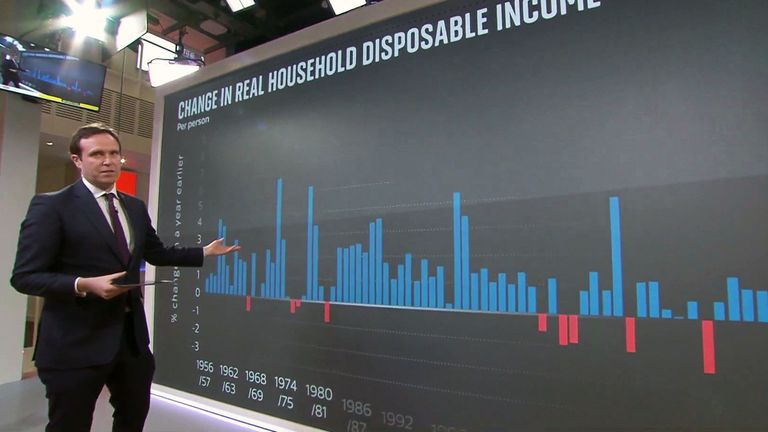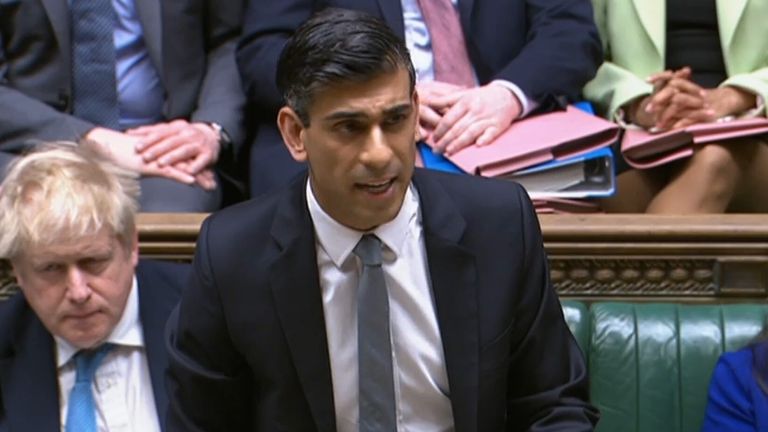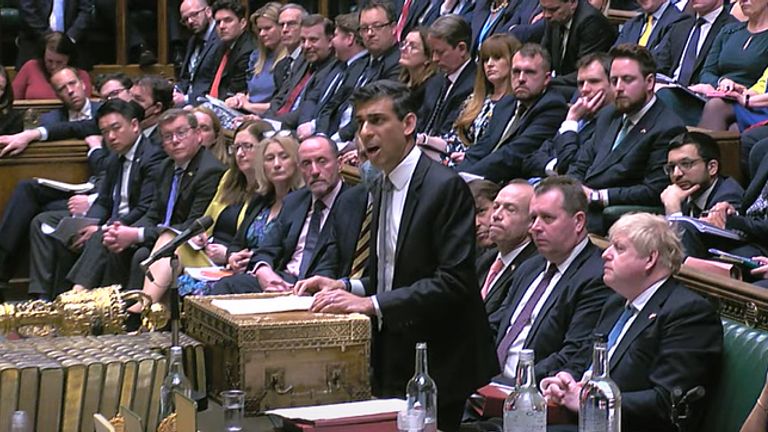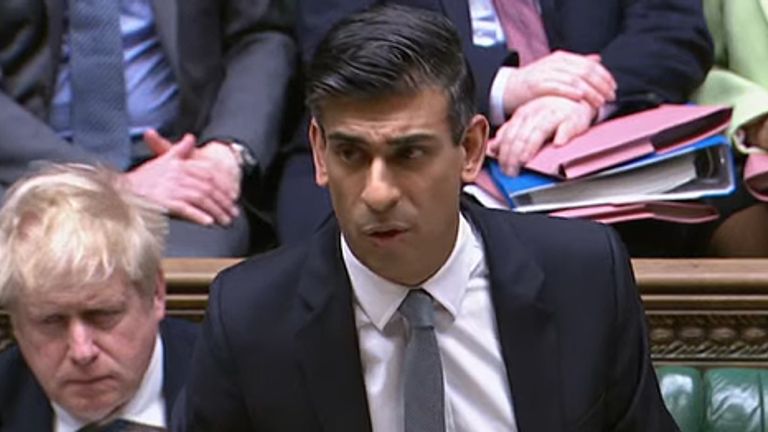For all the eye-catching measures from Rishi Sunak in his mini-budget on Wednesday, what most stood out was the strength of the economic headwinds coming our way.
For millions of families already feeling the cost of living squeeze, the news was unrelentingly grim.
Inflation is set to hit a 40-year high of 8.7% later in the year, while all of us should brace for the biggest fall in living standards since records began in the 1950s, according to forecasts released by the Office of Budget Responsibility.
‘We just can’t catch a break’
Out of a pandemic and into a war, economic uncertainty is the only thing ministers can be certain of these days.
As one ruefully put to me once the chancellor sat down: “We just can’t catch a break at the moment.”
Neither can consumers, who are being battered around by soaring energy costs fuel prices and food bills.
The chancellor offered some help on Wednesday, raising the threshold for National Insurance to £12,575 – at a cost of £6bn – to help people on lower pay by ameliorating the impact of the levy to pay for health and social care.
He also spent £5bn taking 5p off a litre of fuel for the next 12 months.
Read more: Why chancellor’s ‘5p-a-litre cut’ is unlikely to be reflected at the pumps this week
And his final flourish was the promise of an income tax cut – the basic rate being cut by 1p to 19p – by 2024.
Read more: Key points of the chancellor’s spring statement
Chancellor acts with potential future economic uncertainty in mind
But put this in context and this is not a big giveaway.
The tax cuts announced on Wednesday only offset around one-sixth of the tax rises Rishi Sunak has introduced in the last two years, according to the OBR.
Meanwhile, the £50bn improvement in public finances from higher-than-expected growth and tax revenue in the current financial year was banked rather than spent, Mr Sunak building in cushioning for economic uncertainty and his pre-election war chest: the chancellor promising jam tomorrow then when people really need help today.
Watch for further support coming in the autumn budget – if not before – as the energy price cap for domestic bills could rise from almost £2,000 in April to about £3,000 in October.
As Paul Johnson, of the Institute for Fiscal Studies, put it to me: “When the next rise in energy prices comes – the next one’s in April and another one around October, I think there will be more pressure on the chancellor because there are going to be more pressure because more households, particularly the very poorest, are going to be struggling.”
Current unpredictability makes long-term planning almost impossible
As with the COVID pandemic, the unpredictability of the economy against the backdrop of the Ukraine conflict and the fall-out of sanctions, coupled with the volatility of energy prices, makes it almost impossible to plan for the long-term.
So for now, Mr Sunak is reserving some of his firepower, aware that in the coming months he could even be forced to come back – as he did with the £9bn energy and council tax package in February – and offer more support to struggling consumers, particularly for the poorest households who were overlooked in this statement.
What is going to hit in the coming months has yet to fully unfold, but this is undoubtedly going to be a tough year for millions of families up and down the country, and the prospect of a tax cut two years out will do nothing to ease that pain.
Meanwhile, public services and public sector workers have been given nothing in this statement to compensate them for higher inflation and energy prices, which will only serve to drag on our frontline staff and on our services in hospitals and schools.
Promises made for 2024 won’t mean much if those of 2019 aren’t lived up to, and levelling up won’t mean much to voters if they go into the next general election feeling materially worse off than they did when they voted Conservative in the last general election.
If the last election was defined by Brexit, the government’s handling of the cost of living crisis in the coming months could define the next.




